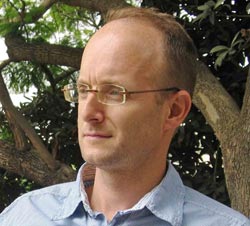Israeli police block Palestinian ‘March of Return’
The annual "March of Return" by Palestinians in Israel, commemorating the Nakba - the expulsion of hundreds of thousands of Palestinians from their homes in 1948 - has been blocked by the Israeli police for the first time in its history. The police have denied the organisers a permit, saying there is a shortage of officers to oversee the march. But Palestinian leaders in Israel accuse the government of Benjamin Netanyahu of being behind the decision.

